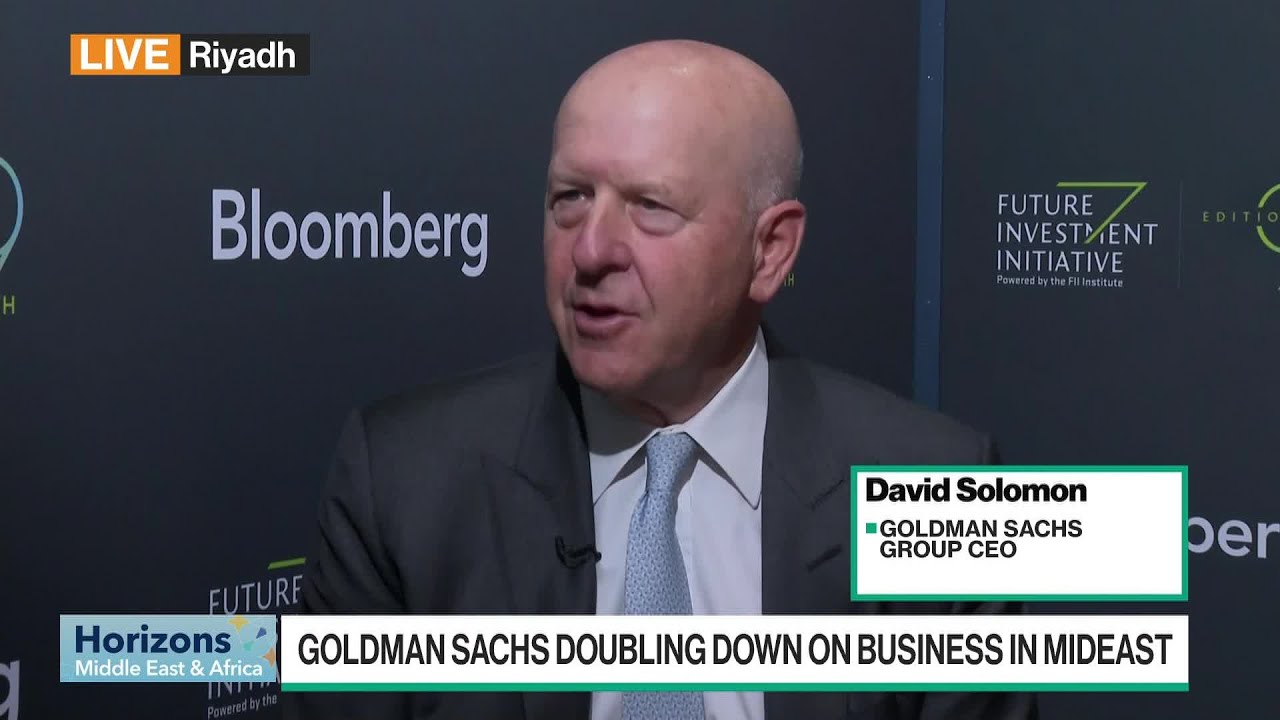David Solomon highlights Goldman Sachs’ strategic expansion in the Middle East, driven by regional economic diversification and AI integration, while emphasizing the continued importance of physical presence and relationship-building in finance. He expresses confidence in the firm’s strong positioning amid market cycles, underscores disciplined credit risk management, and views AI as a transformative tool that will enhance productivity without replacing the essential human elements of investment banking.
In the interview, David Solomon, Group CEO of Goldman Sachs, discusses the firm’s expanding presence and initiatives in the Middle East, particularly in Saudi Arabia and Kuwait. Goldman Sachs is significantly investing in the region, opening new offices and growing its workforce to support its high-end private wealth business and asset management partnerships, including one with the Public Investment Fund (PIF) of Saudi Arabia. Solomon highlights the region’s evolving economic landscape, driven by infrastructure investments, tourism, manufacturing, and the integration of AI technologies, which present substantial opportunities for foreign direct investment and capital market activities.
Solomon emphasizes the importance of having a physical presence in key financial hubs, despite advances in technology, as building relationships and trust through face-to-face interactions remains crucial in finance. He notes that sovereign wealth funds in the region are shifting from merely seeking investment returns to actively building local economies and investment capabilities. This shift creates demand for strategic partnerships, liquidity, capital, and innovative ideas to support economic growth and diversification, especially in countries like Saudi Arabia with large populations and ambitious development plans.
Regarding Goldman Sachs’ overall performance, Solomon expresses confidence in the firm’s strategic positioning, which has been shaped by decisions made over the past several years to strengthen investment banking, markets, and asset and wealth management businesses. He acknowledges the cyclical nature of markets but believes the firm is well-placed to continue growing earnings and client engagement over the next decade. On the macroeconomic front, Solomon comments on the U.S. economy’s resilience, the Federal Reserve’s cautious approach to interest rate cuts, and the ongoing challenges faced by lower-income consumers amid persistent inflation.
Solomon also addresses concerns about credit markets, describing recent credit issues as isolated incidents rather than signs of systemic risk. He stresses the importance of rigorous underwriting and risk management, noting that credit cycles are inevitable and that lenders must be prepared for periods of economic stress. He views private credit as a long-term, through-the-cycle activity where real value is generated during tougher economic times, rather than a source of “easy money.” This perspective underscores Goldman Sachs’ disciplined approach to lending and credit investment.
Finally, Solomon discusses the transformative potential of artificial intelligence (AI) for Goldman Sachs and the broader economy. He highlights the firm’s “Goldman Sachs 3.0” initiative, which aims to leverage AI to enhance client service, improve efficiency, and strengthen risk management. While acknowledging that AI will change certain jobs and may replace some entry-level roles, Solomon believes it will also create new opportunities and increase productivity. He underscores that relationship-building and trust remain core to investment banking, skills that technology cannot replace, and that AI will serve as a tool to empower professionals rather than diminish the human element in finance.
